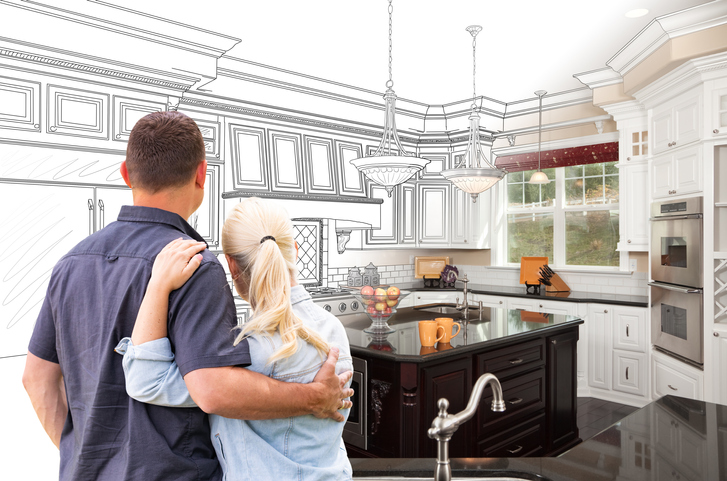How the FHA loan program works
 The 203(k) FHA loan actually features two types of borrowing options, depending on the amount of renovations you're envisioning for your home. The 203(k) limited plan allows for small borrowing to address minor renovations such as a roof replacement or new flooring in the home.
The 203(k) FHA loan actually features two types of borrowing options, depending on the amount of renovations you're envisioning for your home. The 203(k) limited plan allows for small borrowing to address minor renovations such as a roof replacement or new flooring in the home.
The 203(k) standard plan is available for more intensive renovations that will bring structural change to the home, particularly renovations that will increase the appraised value of the home.
FHA loans also have unique qualification rules that differ from other mortgages. The minimum down payment is only 3.5 percent, to accommodate borrowers planning to make home renovations. However, this loan also requires an up-front mortgage insurance payment of 1.75 percent, as well as monthly mortgage insurance based on the value on the home
How homebuyers benefit
For homeowners looking to purchase a home that offers great earnings potential through increases to its home value, an FHA loan can make it possible to buy homes via short sales and foreclosure, as well as homes that simply need more remodeling and updates. It's also a much cheaper alternative to using home equity loans to cover the cost of home improvements.
Because the 203(k) loan provides financing for both the home and its repairs, homebuyers get all of their financing needs in one place. And if you buy a home that isn't inhabitable right away, you can delay mortgage payments for up to six months until you're able to move in.
Rules for making home improvements
 Because you're borrowing money with the assumption that your renovations will add value to the home, part of the FHA loan approval process will require you to submit a plan that is expected to earn a home appraisal that meets or exceeds what you're spending on home renovations. For this reason, there are restrictions about the types of renovations you can make on a home. You can use the money to finish the basement in your home, for example, but you can't use it to install a pool in your backyard.
Because you're borrowing money with the assumption that your renovations will add value to the home, part of the FHA loan approval process will require you to submit a plan that is expected to earn a home appraisal that meets or exceeds what you're spending on home renovations. For this reason, there are restrictions about the types of renovations you can make on a home. You can use the money to finish the basement in your home, for example, but you can't use it to install a pool in your backyard.
With the 203(k) standard, you can expect to go through more paperwork receiving approvals from loan program administrators, and you will have to work with a cost consultant to review your spending. You also need to complete all renovations within six months. Before taking out an FHA loan, you'll want to review all of these rules to make sure you're a good fit for the program.
When you want to make significant renovations to restore a home to its former glory, an FHA loan might be the right financing tool to help you cover both the purchase and the improvements to your home. If you're interested in learning more, talk to a lender or mortgage expert who can work with you to help you decide whether an FHA loan is right for you.